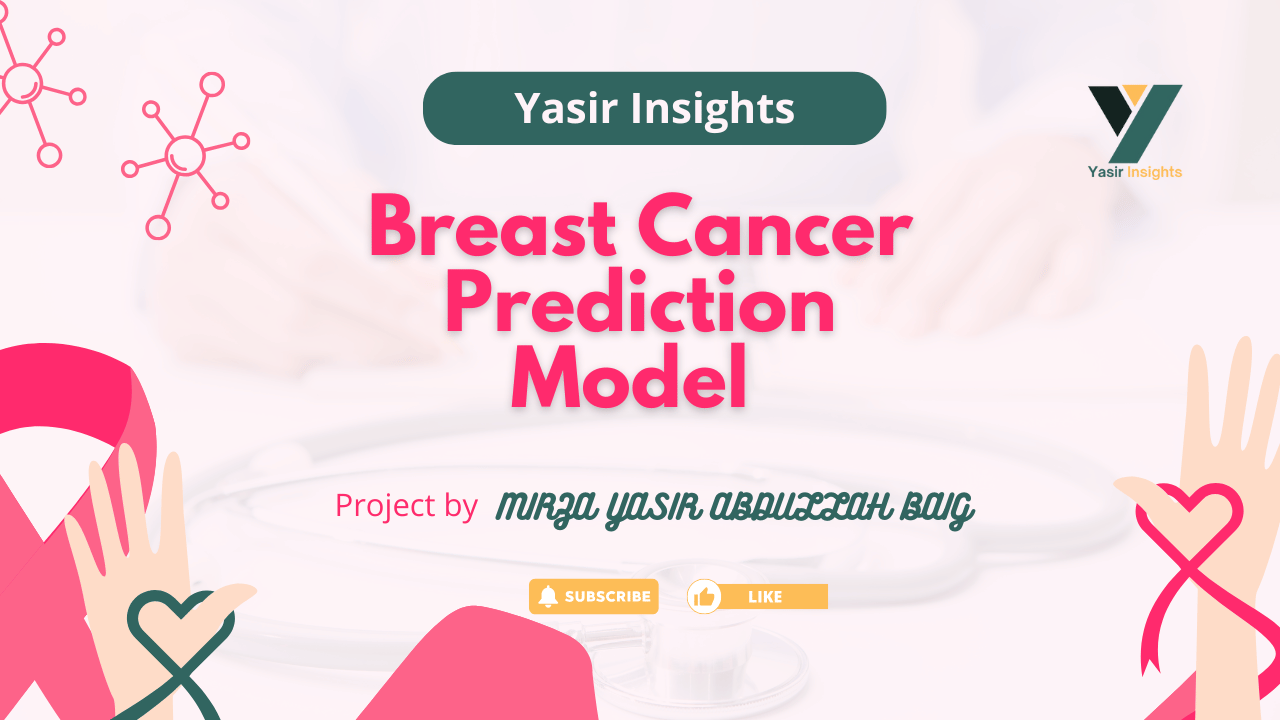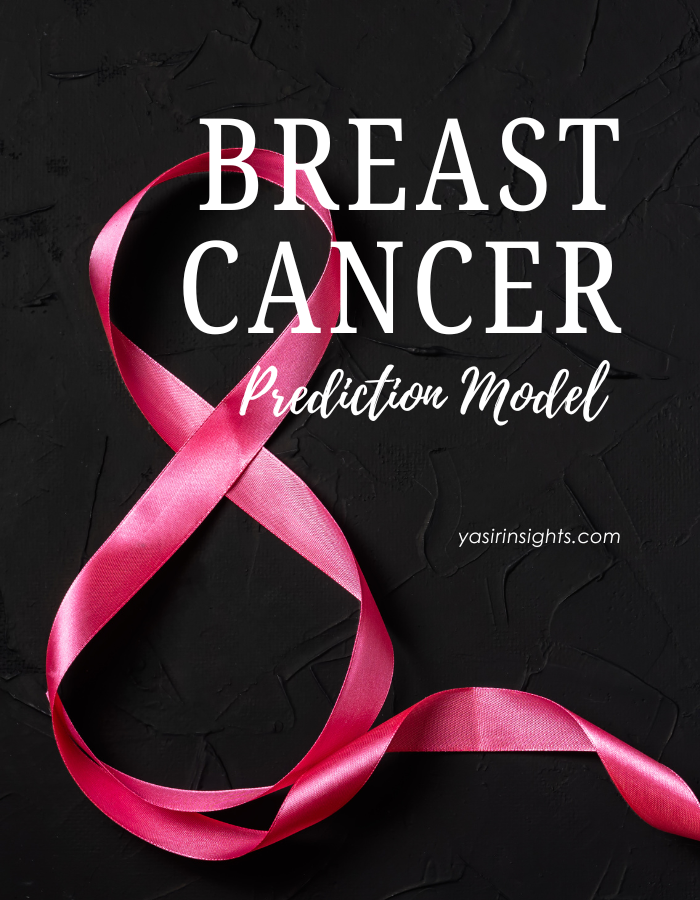
Client:
AvailableProduction:
Yasir InsightsDate:
August 27, 2024Category:
Machine LearningLocation:
Lahore, PunjabProject Details
Breast cancer is one of the most common cancers worldwide, and early detection is critical for improving survival rates. I built this Breast Cancer Prediction App to demonstrate how AI and machine learning can assist in healthcare by predicting whether a tumor is Malignant (cancerous) or Benign (non-cancerous). The main goal was to create an educational tool that simplifies complex medical data, making it easier for users to understand and interact with, while also showcasing an end-to-end machine learning workflow for my portfolio and interviews.
The app uses the Breast Cancer Wisconsin (Diagnostic) Dataset from the UCI Machine Learning Repository, which contains 30 medical features per tumor. To enhance usability, I simplified input to 8 key features that strongly influence tumor prediction, such as radius, perimeter, area, and smoothness. The dataset was carefully preprocessed to remove missing values and duplicates, and features were scaled to ensure optimal model performance. This approach balances predictive accuracy with ease of use for end users.
For this project, I implemented supervised machine learning models including Logistic Regression, Random Forest, and a Neural Network using TensorFlow/Keras. The Random Forest Classifier was primarily used due to its ability to handle non-linear relationships, high accuracy, and feature importance insights. The app performs end-to-end tasks: data preprocessing, model training, evaluation (accuracy, precision, recall, F1-score), and model serialization using Pickle for deployment. This ensures the system is both robust and reproducible.
The model is deployed as a user-friendly web app using Streamlit, allowing users to input tumor features and receive immediate predictions via visual result cards. ⚠️ Malignant results advise consulting a doctor, while ✅ Benign results indicate no immediate concern. The app includes an About Me sidebar with portfolio links and is designed for clarity and simplicity. While it is not a substitute for professional medical advice, this project demonstrates practical AI implementation in healthcare and is an excellent portfolio piece for interviews, showing proficiency in machine learning, data handling, and web deployment.

The Breast Cancer Prediction App predicts whether a tumor is Malignant (cancerous) or Benign (non-cancerous) using key medical features. It allows users to input tumor characteristics and provides instant, easy-to-understand results. This helps demonstrate how AI can assist in early cancer detection.

This app uses a trained machine learning model to assess breast cancer risk from 8 important tumor features. Users receive clear predictions with visual indicators for cancerous or non-cancerous tumors. It showcases an end-to-end ML workflow from data processing to deployment.



Developed a comprehensive strategy to create an AI-powered Breast Cancer Prediction App that focuses on early tumor detection, simplifying medical data input, and providing clear, actionable results for users. The goal was to combine healthcare insights with machine learning to deliver an educational and practical tool.
Successfully implemented the project using Python, Streamlit, and Scikit-learn/TensorFlow. Built a predictive model trained on the Breast Cancer Wisconsin (Diagnostic) Dataset, simplified input to 8 essential features, and deployed it as a user-friendly web application with instant prediction results.
Conducted in-depth analysis of tumor features, identifying the most important attributes affecting prediction accuracy. Evaluated model performance using metrics such as accuracy, precision, recall, and F1-score to ensure reliable predictions and reduce false negatives, which is critical in medical applications.
Generated clear and visual prediction results for users, displaying whether tumors are Malignant or Benign. Provided insights into feature importance and model confidence, enabling better understanding of risk factors. The app also includes detailed explanations and portfolio links for educational purposes.
